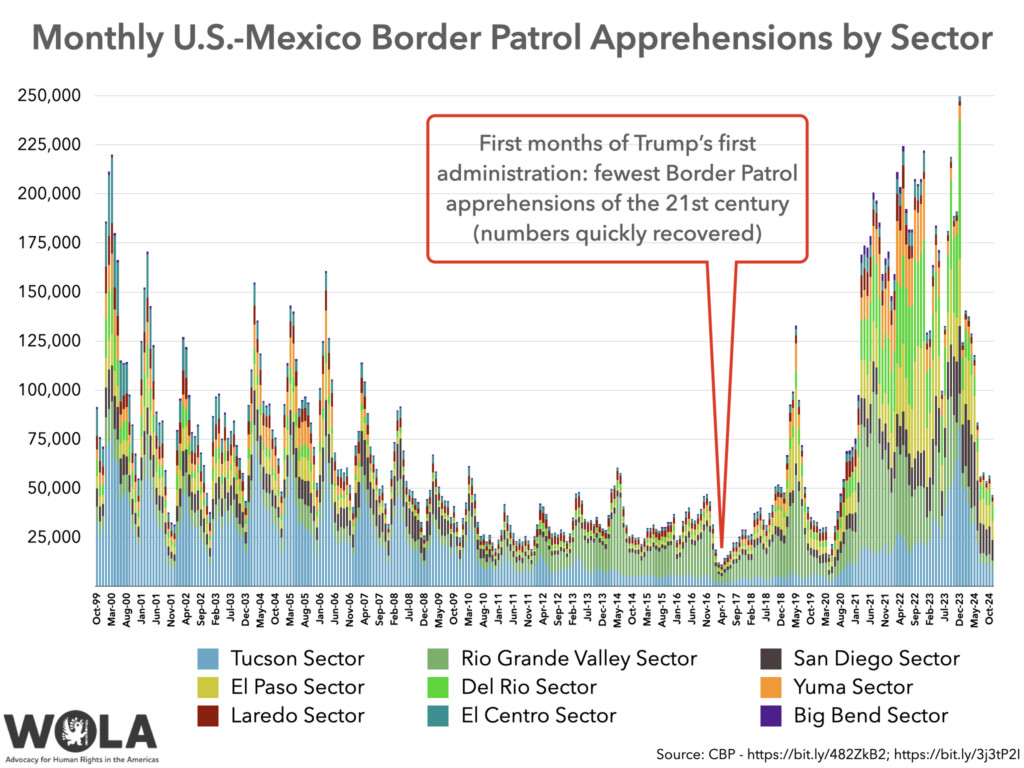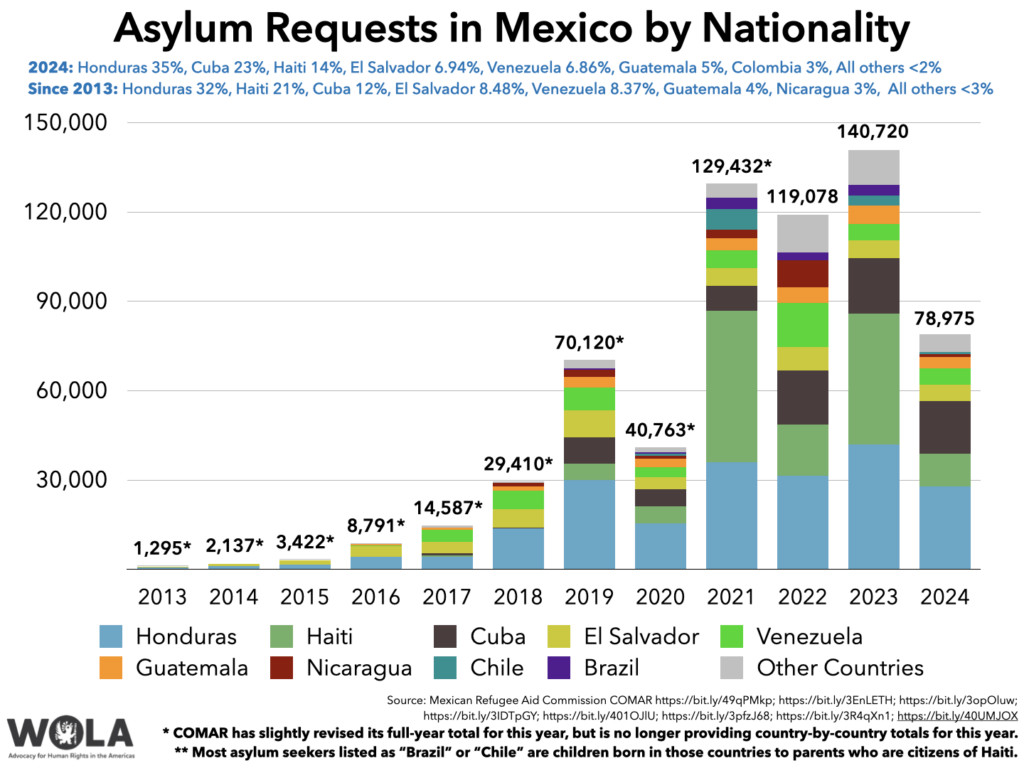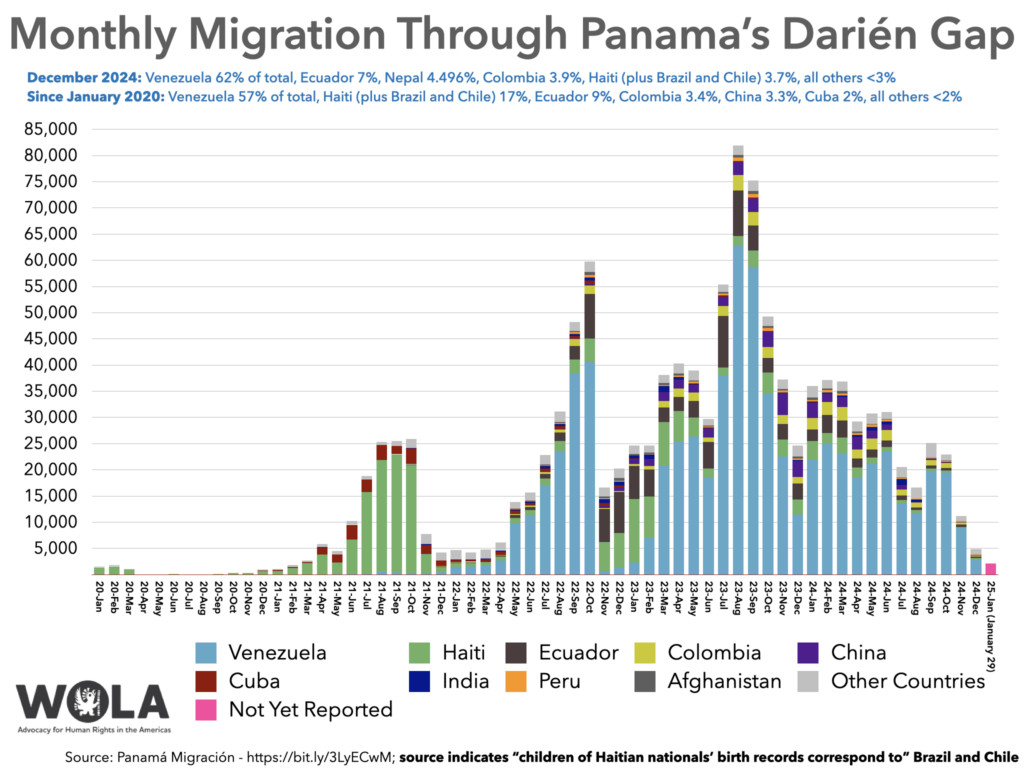Is Mexico Deporting Migrants, and how does it affect LGBTQ+ travelers and residents? At gaymexico.net, we understand the importance of staying informed about immigration policies and their potential impact on our community in Mexico. This guide provides essential information, resources, and tips for LGBTQ+ individuals navigating these issues, ensuring you have the knowledge to stay safe and supported, offering safe travel tips, community resources, and legal insights.
1. Understanding Mexico’s Immigration Policies
What are Mexico’s current immigration policies towards migrants, and how do they affect LGBTQ+ individuals? Mexico’s immigration policies are multifaceted, aiming to balance border security with humanitarian concerns. According to the Migration Policy Institute, Mexican immigration enforcement has historically focused on irregular migration, particularly along its southern border with Guatemala. These policies, while not explicitly targeting LGBTQ+ individuals, can disproportionately affect vulnerable populations, including those seeking asylum based on sexual orientation or gender identity.
Mexico’s immigration laws are primarily governed by the Ley de Migración (Migration Law) and its regulations. These laws outline the requirements for entry, stay, and exit from Mexico, as well as the procedures for deportation.
1.1 Key Aspects of Mexican Immigration Law
- Entry Requirements: Foreign nationals must meet specific requirements to enter Mexico, including possessing a valid passport, visa (if required), and demonstrating the purpose of their visit.
- Visa Categories: Mexico offers various visa categories, including tourist visas, business visas, student visas, and temporary or permanent residency visas.
- Deportation Procedures: Mexican authorities have the power to detain and deport individuals who violate immigration laws, such as overstaying their visas or entering the country without proper documentation.
- Asylum and Refugee Status: Mexico recognizes the right to seek asylum and offers protection to individuals fleeing persecution in their home countries. The Comisión Mexicana de Ayuda a Refugiados (COMAR) is the agency responsible for processing asylum claims.
1.2 How Immigration Policies Affect LGBTQ+ Individuals
While Mexican immigration laws are generally neutral on their face, their enforcement can disproportionately affect LGBTQ+ individuals due to several factors:
- Vulnerability to Discrimination: LGBTQ+ migrants may face discrimination and mistreatment from authorities, particularly if they are undocumented or seeking asylum.
- Difficulty in Proving Asylum Claims: LGBTQ+ asylum seekers may encounter challenges in providing sufficient evidence of persecution based on their sexual orientation or gender identity.
- Lack of Awareness: Some immigration officials may lack awareness of LGBTQ+ issues, leading to misunderstandings and inappropriate treatment.
1.3 Resources and Support for LGBTQ+ Migrants
Several organizations in Mexico provide legal assistance, social support, and advocacy services to LGBTQ+ migrants:
- Albergue Casa Frida: A shelter in Mexico City that provides housing and support to LGBTQ+ migrants and asylum seekers.
- Comisión Mexicana de Ayuda a Refugiados (COMAR): The Mexican government agency responsible for processing asylum claims.
- Sin Fronteras IAP: An organization that provides legal and humanitarian assistance to migrants in Mexico.
- Asylum Access Mexico (AAMX): A non-profit that provides legal services to refugees and asylum seekers.
 Casa Frida, a shelter in Mexico City
Casa Frida, a shelter in Mexico City
2. Current Deportation Trends in Mexico
What are the current trends in migrant deportations from Mexico, especially concerning LGBTQ+ individuals? Mexico has increased its immigration enforcement efforts in recent years, leading to a rise in deportations. Data from the Mexican government indicates that the majority of those deported are from Central American countries.
2.1 Factors Contributing to Deportation Trends
- Increased Border Security: Mexico has tightened its border security measures in response to pressure from the U.S. government.
- Economic Factors: Economic hardship and lack of opportunities in migrants’ home countries drive migration flows toward Mexico and the United States.
- Political Instability: Political instability and violence in Central America contribute to displacement and migration.
2.2 Challenges Faced by LGBTQ+ Migrants During Deportation
- Risk of Re-Traumatization: LGBTQ+ migrants who have experienced persecution in their home countries may be re-traumatized during deportation.
- Lack of Safe Housing: Upon arrival in their home countries, LGBTQ+ deportees may lack access to safe housing and face homelessness.
- Increased Vulnerability to Violence: LGBTQ+ individuals may face heightened risks of violence and discrimination in their home countries due to their sexual orientation or gender identity.
2.3 How to Stay Informed
- Monitor Official Sources: Keep track of official announcements from Mexican immigration authorities and international organizations like the UNHCR.
- Follow Reputable News Outlets: Stay updated through reliable news sources that provide accurate and balanced reporting on immigration issues.
- Engage with Advocacy Groups: Connect with LGBTQ+ advocacy groups and migrant rights organizations to receive timely updates and information.
3. Legal Rights and Protections for Migrants in Mexico
What legal rights and protections are available for migrants in Mexico, particularly those from the LGBTQ+ community? Migrants in Mexico, regardless of their sexual orientation or gender identity, are entitled to certain legal rights and protections under Mexican law and international human rights treaties.
3.1 Fundamental Rights
- Right to Due Process: Migrants have the right to due process in immigration proceedings, including the right to legal representation and the right to appeal deportation orders.
- Right to Seek Asylum: Mexico recognizes the right to seek asylum for individuals fleeing persecution in their home countries.
- Protection Against Discrimination: Mexican law prohibits discrimination based on sexual orientation and gender identity.
3.2 Legal Assistance and Resources
- Legal Aid Organizations: Several organizations in Mexico provide free or low-cost legal assistance to migrants.
- Public Defenders: Migrants have the right to request a public defender to represent them in immigration court.
- Consular Assistance: Migrants can seek assistance from their country’s consulate or embassy in Mexico.
3.3 Asylum Process for LGBTQ+ Individuals
- Filing an Asylum Claim: LGBTQ+ individuals seeking asylum in Mexico must file a claim with COMAR, the Mexican refugee agency.
- Providing Evidence: Asylum seekers must provide evidence of persecution based on their sexual orientation or gender identity, such as personal testimonies, medical records, and reports from human rights organizations.
- Appeal Rights: If an asylum claim is denied, the applicant has the right to appeal the decision to the Mexican courts.
4. The Impact of U.S. Policies on Mexican Deportation Practices
How do U.S. policies influence Mexico’s deportation practices, and what are the implications for LGBTQ+ migrants? U.S. immigration policies have a significant impact on Mexico’s deportation practices. The U.S. government has exerted pressure on Mexico to increase its immigration enforcement efforts and to accept migrants who are turned away at the U.S. border.
4.1 U.S.-Mexico Agreements
- Agreements on Border Security: The U.S. and Mexico have entered into several agreements on border security, including the Mérida Initiative, which provides funding and training to Mexican law enforcement agencies.
- “Remain in Mexico” Policy: Under the “Remain in Mexico” policy, the U.S. government required asylum seekers to wait in Mexico while their cases were processed in U.S. immigration courts.
- Increased Deportations: The U.S. government has pressured Mexico to accept more deportees, including those who are not Mexican citizens.
4.2 Impact on LGBTQ+ Migrants
- Increased Risk of Deportation: LGBTQ+ migrants in Mexico face an increased risk of deportation due to heightened immigration enforcement.
- Limited Access to Asylum: LGBTQ+ asylum seekers may encounter difficulties in accessing asylum in Mexico due to limited resources and bureaucratic hurdles.
- Vulnerability to Violence: LGBTQ+ migrants may be vulnerable to violence and discrimination in Mexican border cities, where they may be targeted by criminal organizations and anti-LGBTQ+ groups.
4.3 Strategies for Staying Safe
- Seek Legal Advice: Consult with an immigration attorney or legal aid organization to understand your rights and options.
- Document Everything: Keep detailed records of any interactions with immigration authorities, including dates, times, and names of officials.
- Report Abuse: Report any instances of abuse or discrimination to human rights organizations or law enforcement agencies.
5. Safe Travel Tips for LGBTQ+ Individuals in Mexico
What are some safe travel tips for LGBTQ+ individuals in Mexico, considering the current immigration climate? Despite the immigration challenges, Mexico remains a popular destination for LGBTQ+ travelers, known for its vibrant culture, beautiful beaches, and welcoming atmosphere.
5.1 Research Your Destination
- LGBTQ+-Friendly Cities: Some Mexican cities, such as Puerto Vallarta, Mexico City, and Guadalajara, are known for being particularly LGBTQ+-friendly.
- Local Laws and Customs: Familiarize yourself with local laws and customs related to LGBTQ+ issues.
- Safety Concerns: Research any safety concerns in the areas you plan to visit, such as crime rates and anti-LGBTQ+ incidents.
5.2 Stay Informed
- Travel Advisories: Monitor travel advisories issued by your home country’s government for any warnings or alerts about safety and security in Mexico.
- Local News: Stay updated on local news and events that may affect your safety.
- LGBTQ+ Resources: Consult LGBTQ+ travel guides and websites for information about LGBTQ+-friendly businesses and events in Mexico.
5.3 Protect Your Identity
- Be Discreet: Avoid public displays of affection in areas where LGBTQ+ acceptance is less common.
- Use Gender-Neutral Bathrooms: Opt for gender-neutral bathrooms when available.
- Carry Identification: Carry a copy of your passport and any other important documents, but keep the originals in a safe place.
 Gay Pride Parade in Mexico City
Gay Pride Parade in Mexico City
6. LGBTQ+ Community Resources and Support Networks in Mexico
Where can LGBTQ+ individuals find community resources and support networks in Mexico? Mexico has a vibrant LGBTQ+ community, with numerous organizations and support networks that offer assistance and resources to LGBTQ+ individuals.
6.1 LGBTQ+ Organizations
- Letra S: A leading LGBTQ+ organization in Mexico City that provides legal services, counseling, and advocacy.
- Yaaj Mexico: An organization that works to promote the rights of transgender people in Mexico.
- Casa de las Muñecas Tiresias: A shelter in Mexico City that provides housing and support to transgender women.
6.2 Online Communities
- LGBTQ+ Forums: Join online forums and social media groups to connect with other LGBTQ+ individuals in Mexico.
- Dating Apps: Use dating apps like Grindr and Tinder to meet other LGBTQ+ people in your area.
- Social Media: Follow LGBTQ+ activists and organizations on social media for updates and information.
6.3 Mental Health Support
- Therapists: Find a therapist or counselor who specializes in LGBTQ+ issues.
- Support Groups: Attend support groups for LGBTQ+ individuals to share experiences and receive emotional support.
- Hotlines: Call LGBTQ+ hotlines for crisis intervention and support.
7. Stories and Experiences of LGBTQ+ Migrants in Mexico
What are some of the stories and experiences of LGBTQ+ migrants in Mexico? Hearing personal stories can provide valuable insights into the challenges and resilience of LGBTQ+ migrants in Mexico.
7.1 Challenges Faced
- Discrimination: Many LGBTQ+ migrants face discrimination based on their sexual orientation or gender identity.
- Violence: Some LGBTQ+ migrants experience violence and harassment in their home countries and in Mexico.
- Poverty: Many LGBTQ+ migrants live in poverty and struggle to meet their basic needs.
7.2 Resilience and Hope
- Community Support: LGBTQ+ migrants often find strength and support in their communities.
- Advocacy: Many LGBTQ+ migrants are active in advocating for their rights and the rights of other migrants.
- Hope for the Future: Despite the challenges they face, many LGBTQ+ migrants remain hopeful for a better future.
7.3 Finding a Safe Haven
- Seeking Asylum: Some LGBTQ+ migrants seek asylum in Mexico or other countries.
- Building New Lives: Many LGBTQ+ migrants are able to build new lives for themselves in Mexico, finding acceptance and community.
- Contributing to Society: LGBTQ+ migrants contribute to Mexican society through their work, creativity, and activism.
8. How to Support LGBTQ+ Migrants in Mexico
What can individuals do to support LGBTQ+ migrants in Mexico? There are many ways to support LGBTQ+ migrants in Mexico, from donating to organizations to volunteering your time.
8.1 Donate to Organizations
- LGBTQ+ Shelters: Donate to shelters that provide housing and support to LGBTQ+ migrants.
- Legal Aid Organizations: Support organizations that provide legal assistance to migrants.
- Humanitarian Aid Groups: Donate to groups that provide food, clothing, and medical care to migrants.
8.2 Volunteer Your Time
- Translation Services: Offer translation services to help migrants communicate with authorities and access resources.
- Mentoring: Mentor LGBTQ+ migrants to help them navigate the immigration system and build new lives.
- Advocacy: Advocate for policies that protect the rights of migrants and LGBTQ+ individuals.
8.3 Raise Awareness
- Share Stories: Share stories of LGBTQ+ migrants to raise awareness of their challenges and resilience.
- Attend Events: Attend events and rallies that support migrant rights and LGBTQ+ equality.
- Educate Others: Educate your friends, family, and colleagues about the issues facing LGBTQ+ migrants.
 Migration Charts displaying trends
Migration Charts displaying trends
9. Resources for Further Information and Assistance
Where can individuals find more information and assistance regarding LGBTQ+ migration in Mexico?
9.1 Websites and Organizations
- UNHCR: The UN Refugee Agency provides information and assistance to refugees and asylum seekers worldwide.
- Human Rights Watch: Human Rights Watch investigates and reports on human rights abuses around the world.
- Amnesty International: Amnesty International campaigns for human rights and justice worldwide.
- gaymexico.net: Here you can find more resources tailored to LGBTQ+ individuals in Mexico. Address: 3255 Wilshire Blvd, Los Angeles, CA 90010, United States. Phone: +1 (213) 380-2177. Website: gaymexico.net.
9.2 Government Agencies
- COMAR: The Mexican refugee agency processes asylum claims and provides protection to refugees.
- Mexican Consulates and Embassies: Mexican consulates and embassies can provide assistance to Mexican citizens abroad.
- U.S. Embassies and Consulates in Mexico: U.S. embassies and consulates can provide assistance to U.S. citizens in Mexico.
9.3 Academic Research
- Migration Policy Institute: The Migration Policy Institute conducts research and analysis on migration issues.
- UCLA Williams Institute: The UCLA Williams Institute conducts research on LGBTQ+ issues.
- Center for Migration Studies of New York: The Center for Migration Studies of New York conducts research on migration and refugee issues. According to research from the UCLA Williams Institute, in July 2025, P provides Y
10. The Future of LGBTQ+ Migration in Mexico
What does the future hold for LGBTQ+ migration in Mexico, and what steps can be taken to ensure their safety and well-being? The future of LGBTQ+ migration in Mexico is uncertain, but there are steps that can be taken to ensure their safety and well-being.
10.1 Policy Recommendations
- Strengthen Asylum Systems: Mexico should strengthen its asylum system to ensure that LGBTQ+ asylum seekers have access to fair and efficient procedures.
- Protect Migrant Rights: Mexico should protect the rights of all migrants, regardless of their sexual orientation or gender identity.
- Combat Discrimination: Mexico should combat discrimination against LGBTQ+ individuals and promote equality and inclusion.
10.2 Community Initiatives
- Support LGBTQ+ Organizations: Support LGBTQ+ organizations that provide services and advocacy for migrants.
- Build Alliances: Build alliances between LGBTQ+ communities and migrant rights organizations.
- Raise Awareness: Raise awareness of the challenges facing LGBTQ+ migrants and advocate for their rights.
10.3 International Cooperation
- Share Best Practices: Countries should share best practices for protecting LGBTQ+ migrants and refugees.
- Provide Funding: International organizations and governments should provide funding to support LGBTQ+ migration programs.
- Promote Human Rights: The international community should promote human rights and equality for all, regardless of sexual orientation or gender identity.
Are you ready to explore the vibrant and welcoming LGBTQ+ scene in Mexico? Visit gaymexico.net today for comprehensive travel guides, event listings, and community connections. Discover the best destinations, find safe and inclusive accommodations, and connect with fellow travelers and locals. Your adventure awaits!
FAQ: Mexico’s Approach to Migrants and LGBTQ+ Concerns
1. Is Mexico deporting migrants?
Yes, Mexico deports migrants who violate immigration laws, but policies are in place to protect vulnerable groups.
2. How does Mexico’s immigration policy affect LGBTQ+ individuals?
Mexico’s immigration policies can disproportionately affect LGBTQ+ individuals, who may face discrimination and challenges in seeking asylum.
3. What legal rights do migrants have in Mexico?
Migrants in Mexico have the right to due process, the right to seek asylum, and protection against discrimination.
4. How does the U.S. influence Mexico’s deportation practices?
U.S. policies influence Mexico’s deportation practices through agreements on border security and pressure to accept more deportees.
5. What are some safe travel tips for LGBTQ+ individuals in Mexico?
Research LGBTQ+-friendly cities, stay informed about local laws, and protect your identity.
6. Where can LGBTQ+ individuals find community resources in Mexico?
LGBTQ+ individuals can find community resources through organizations like Letra S and online communities.
7. What challenges do LGBTQ+ migrants face in Mexico?
LGBTQ+ migrants face discrimination, violence, and poverty in Mexico.
8. How can I support LGBTQ+ migrants in Mexico?
You can support LGBTQ+ migrants by donating to organizations, volunteering your time, and raising awareness.
9. Where can I find more information on LGBTQ+ migration in Mexico?
You can find more information on LGBTQ+ migration in Mexico from UNHCR, Human Rights Watch, and gaymexico.net.
10. What does the future hold for LGBTQ+ migration in Mexico?
The future of LGBTQ+ migration in Mexico is uncertain, but policy changes, community initiatives, and international cooperation can help ensure their safety and well-being.
